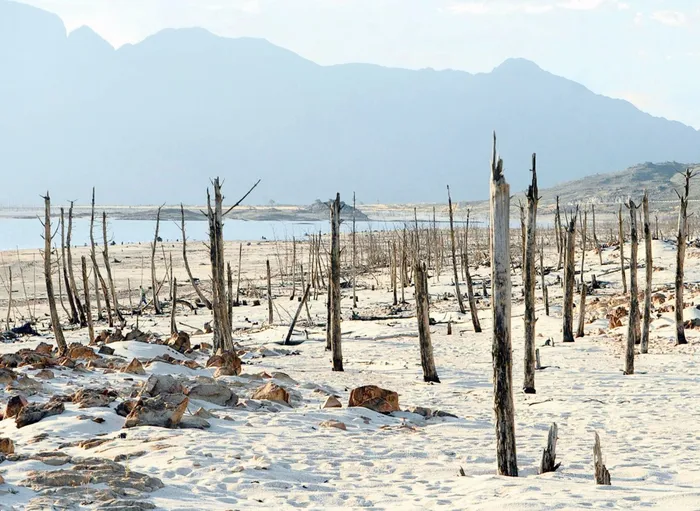#WaterCrisis: City 'too slow' out of desalination blocks

Theewaterskloof Dam on the Sonderend River near Villiersdorp. Picture: Ayanda Ndamane/ANA Pictures Theewaterskloof Dam on the Sonderend River near Villiersdorp. Picture: Ayanda Ndamane/ANA Pictures
Cape Town - Although the City of Cape Town has developed a water augmentation plan to deal with the shortage of water in Cape Town, including the construction of desalination plants, some critics say the municipality is taking too long to start the process.
This is according to Ricardo Pillay, a partner at law firm Dentons. Pillay said with Cape Town facing its longest drought in recent history, it was preparing itself for the inevitability of “Day Zero”, the moment it runs out of water completely.
And although the city had developed a water augmentation plan, which included the construction of desalination plants, and had issued tenders for the projects, critics, especially water treatment companies eager to submit their proposals, had accused the municipality of dragging its feet.
He added that the lag stemmed not from negligence on the part of the City, but its obligation to follow strict procurement procedures.
“Failure to comply with tendering and public procurement laws could result in significant delays.”
Pillay said the procurement legislation ensured a fair, equitable, transparent, competitive and cost-effective procurement process that supports competition and black economic empowerment requirements, and promotes economic growth by employing local labour and sourcing production content locally.
“A departure from these core principles threatens the sanctity of the award of a lawful tender. This is particularly crucial in the construction sector where the government has a responsibility to ensure that all contracting parties have equal access to competition.”
Pillay added that although time-consuming, adherence to the law throughout the project life cycle, in particular the procurement stage, ensured the prompt delivery of benefits and its sustainability.
He said meeting the legal requirements for all phases of public procurement ensured that critical services were implemented as soon as possible while protecting the constitutional rights of every stakeholder.
“Water delivered outside lawful processes could run dry very quickly. It may be impractical under urgent or emergency circumstances to go out to tender. However, using this exception, provided for under the procurement legislation, must be done under proper legal guidance.
“To ensure that public money is spent in an effective and efficient manner, the process must be respected and adhered to, notwithstanding the delays caused.”